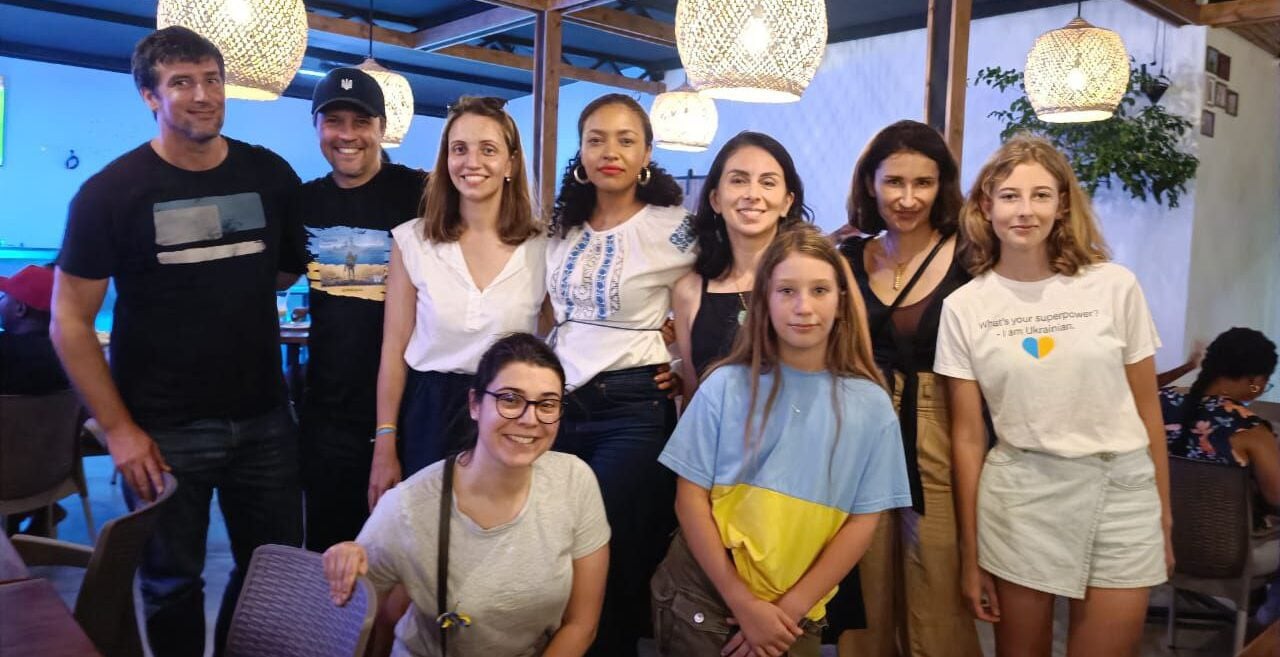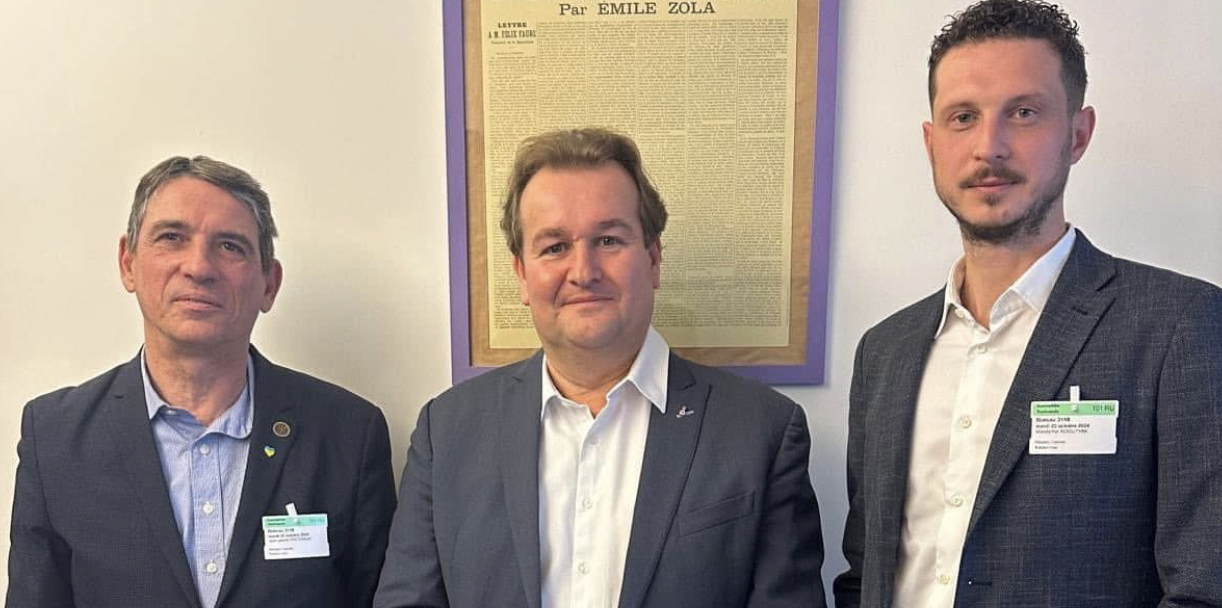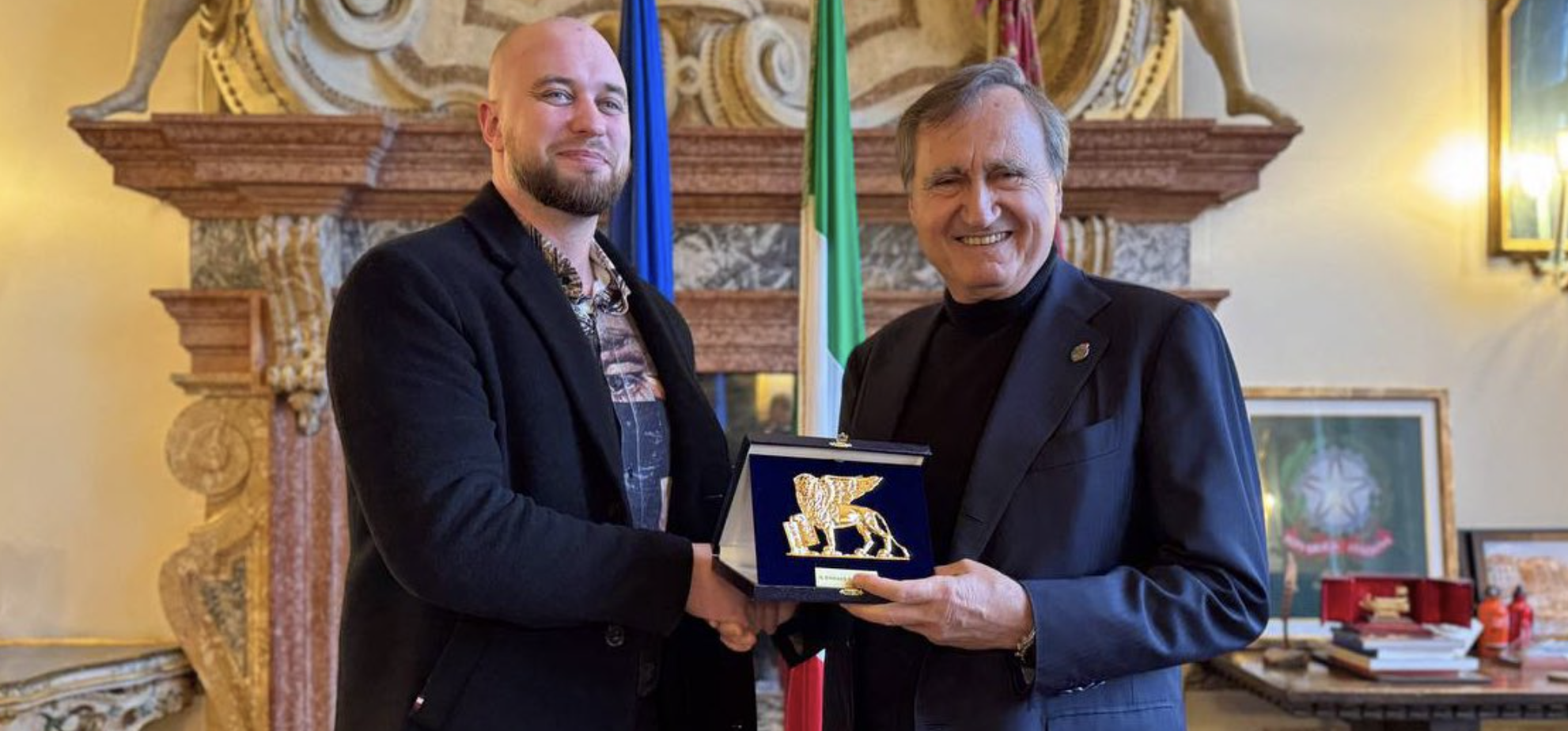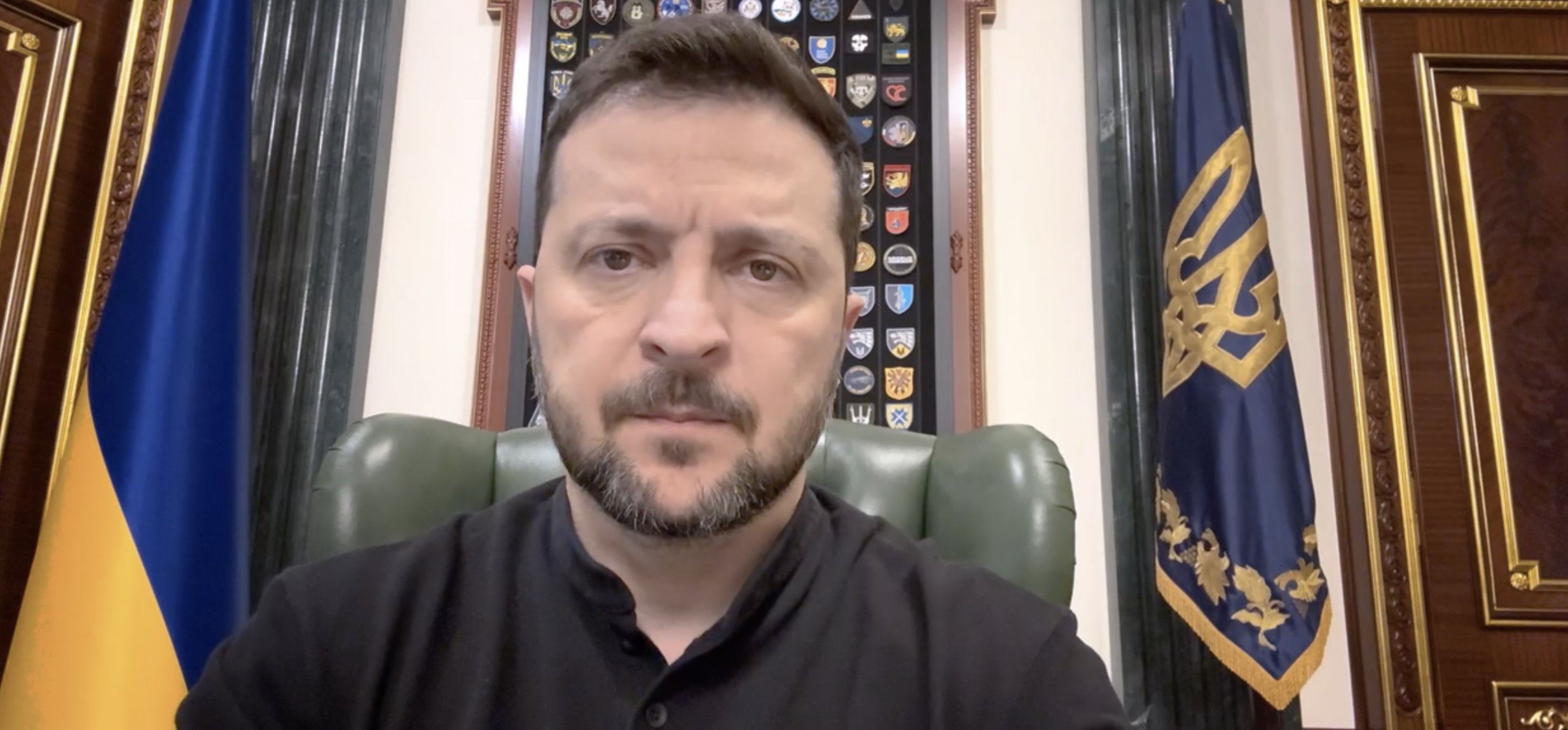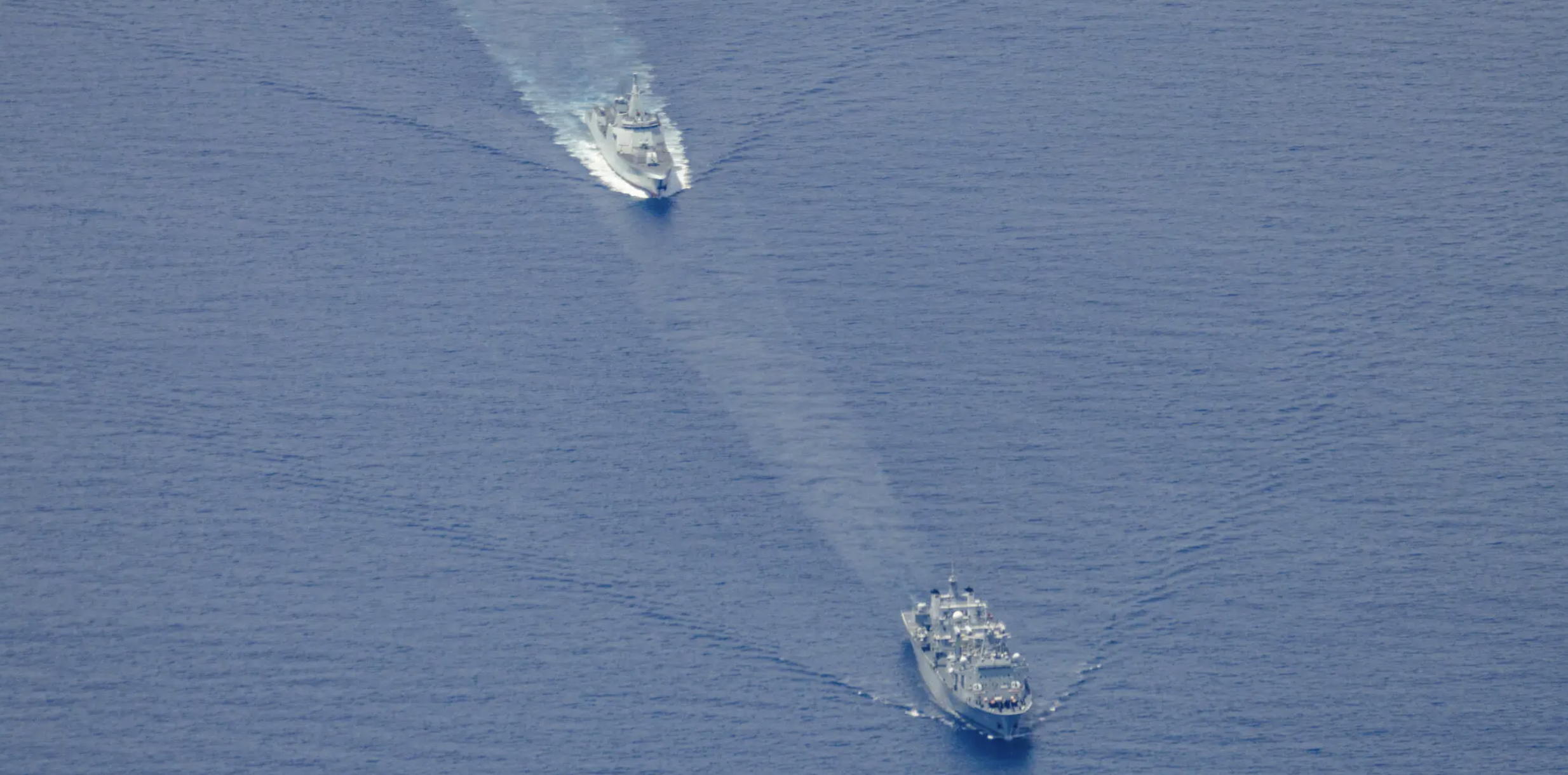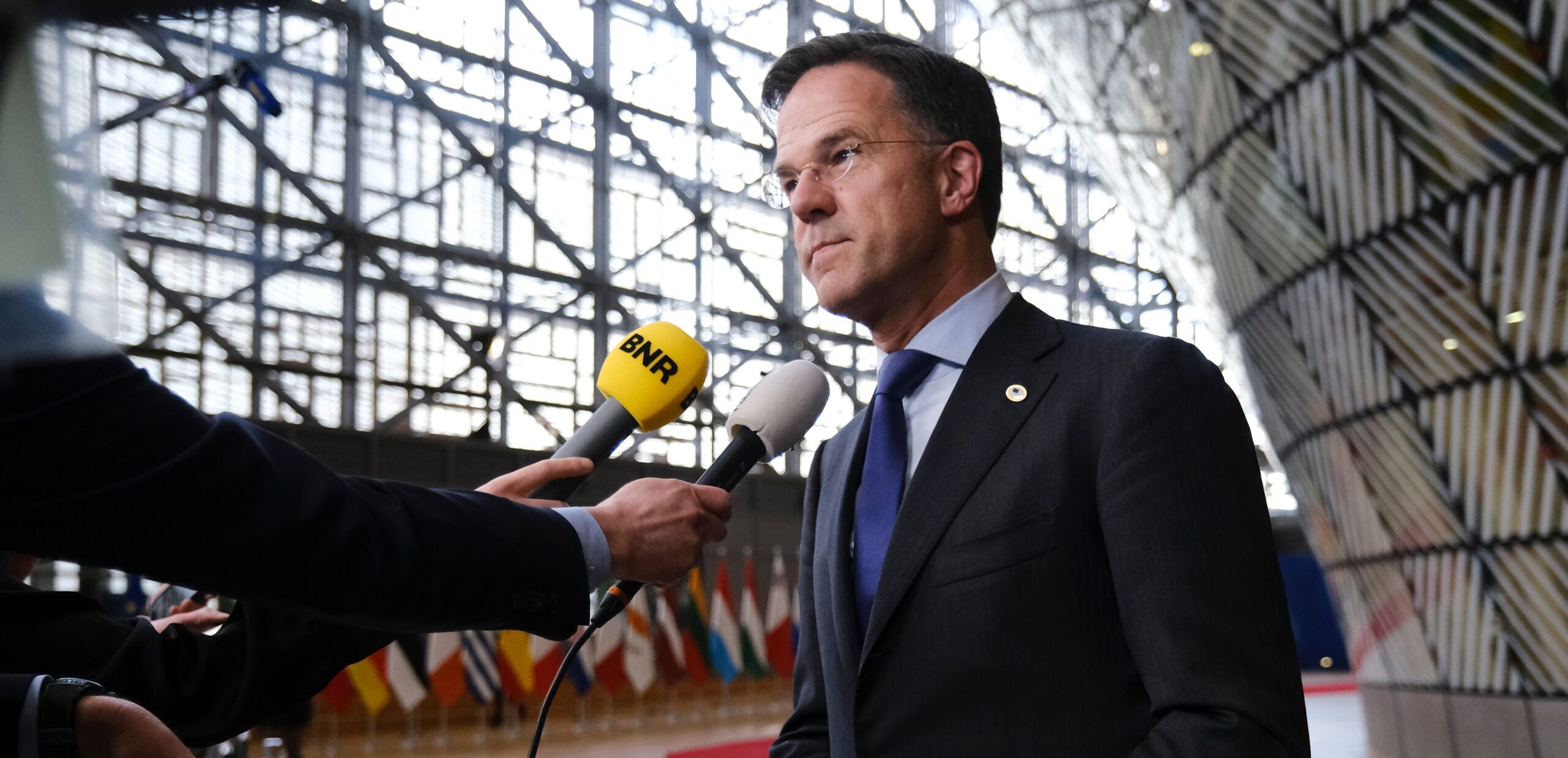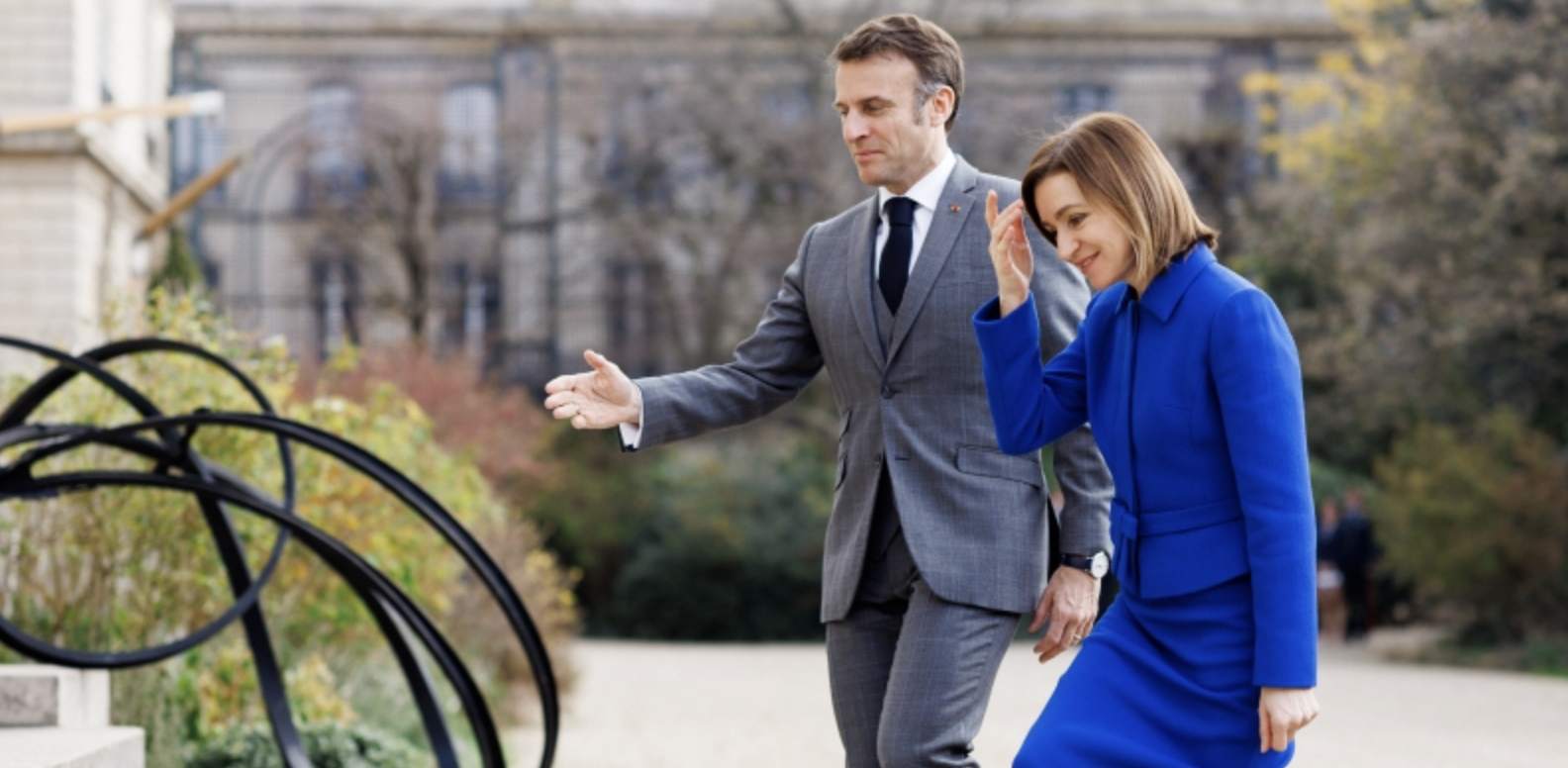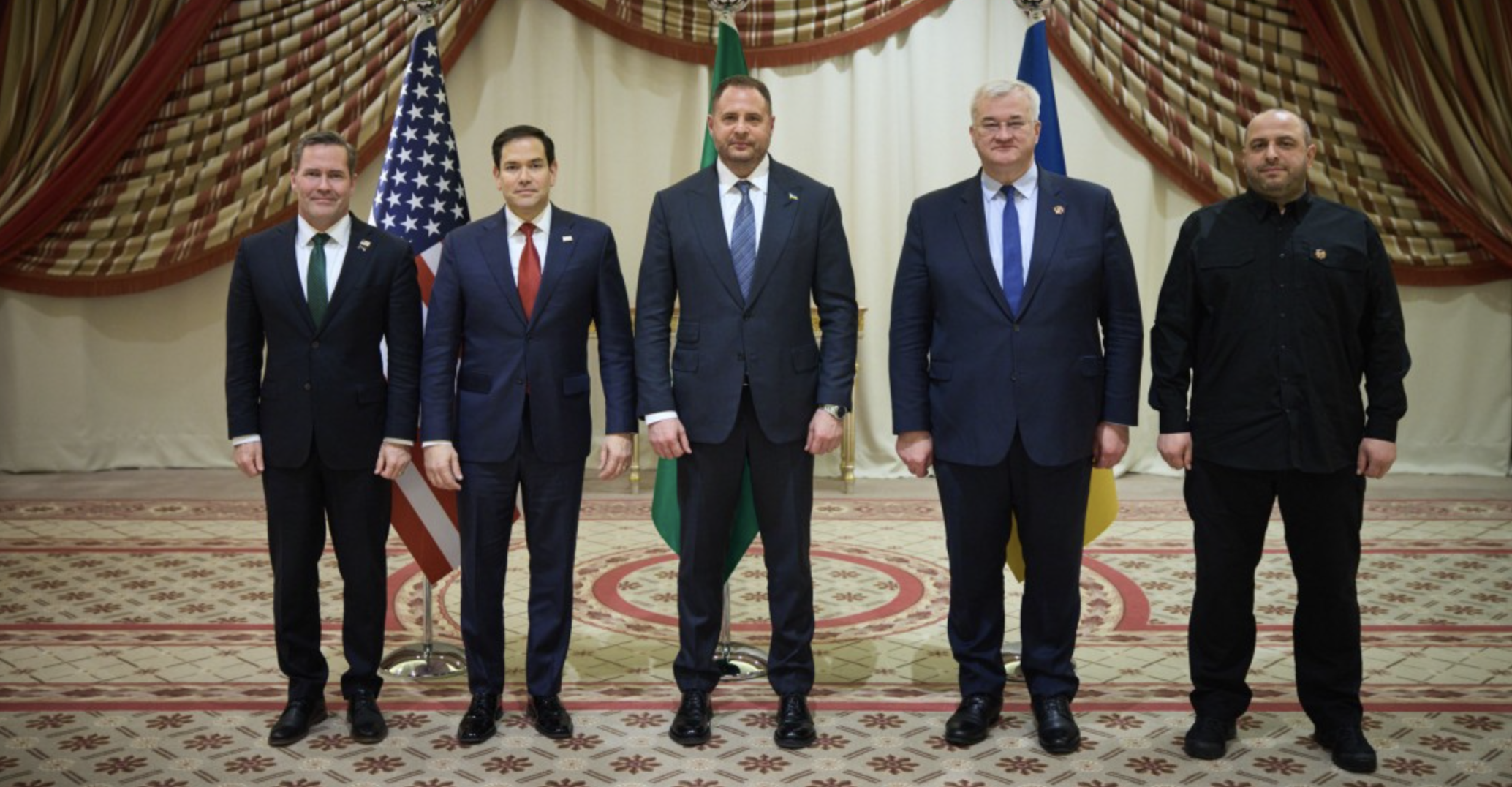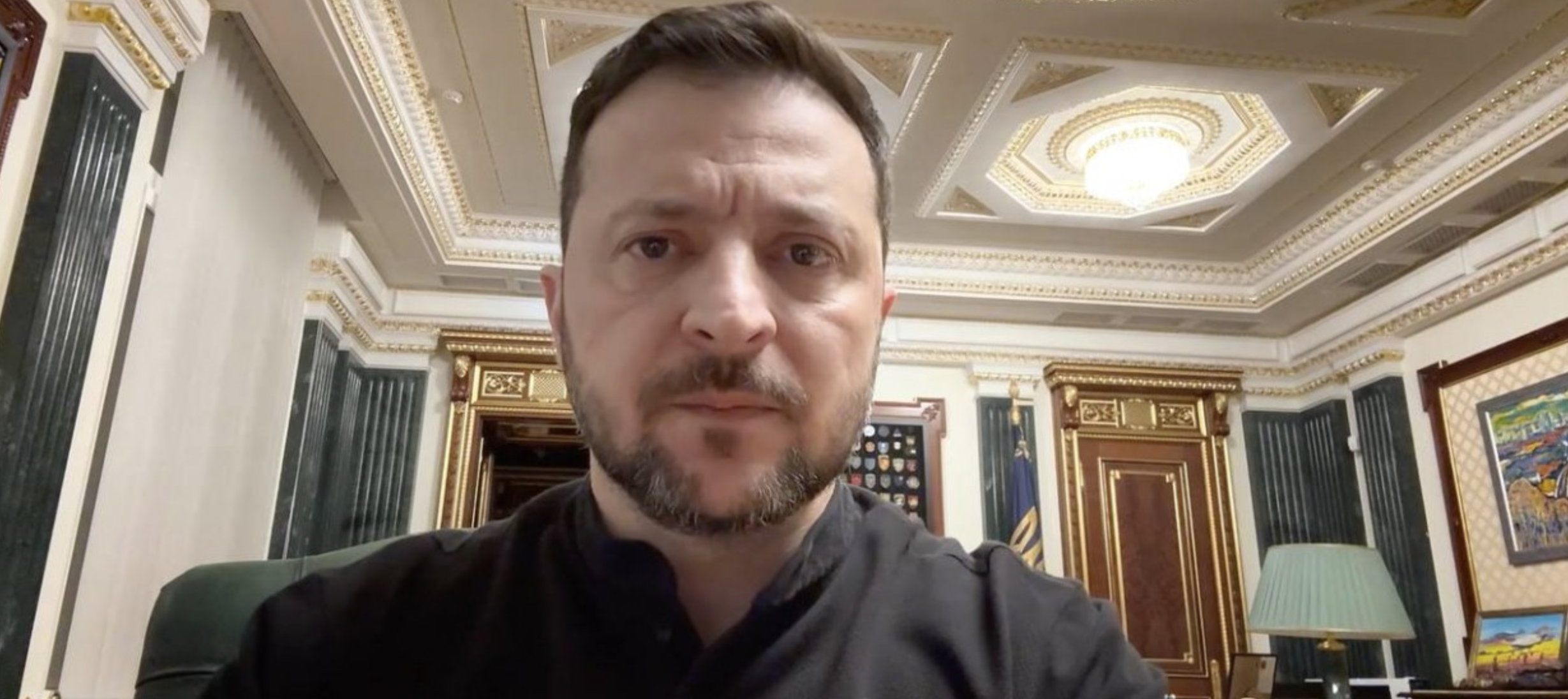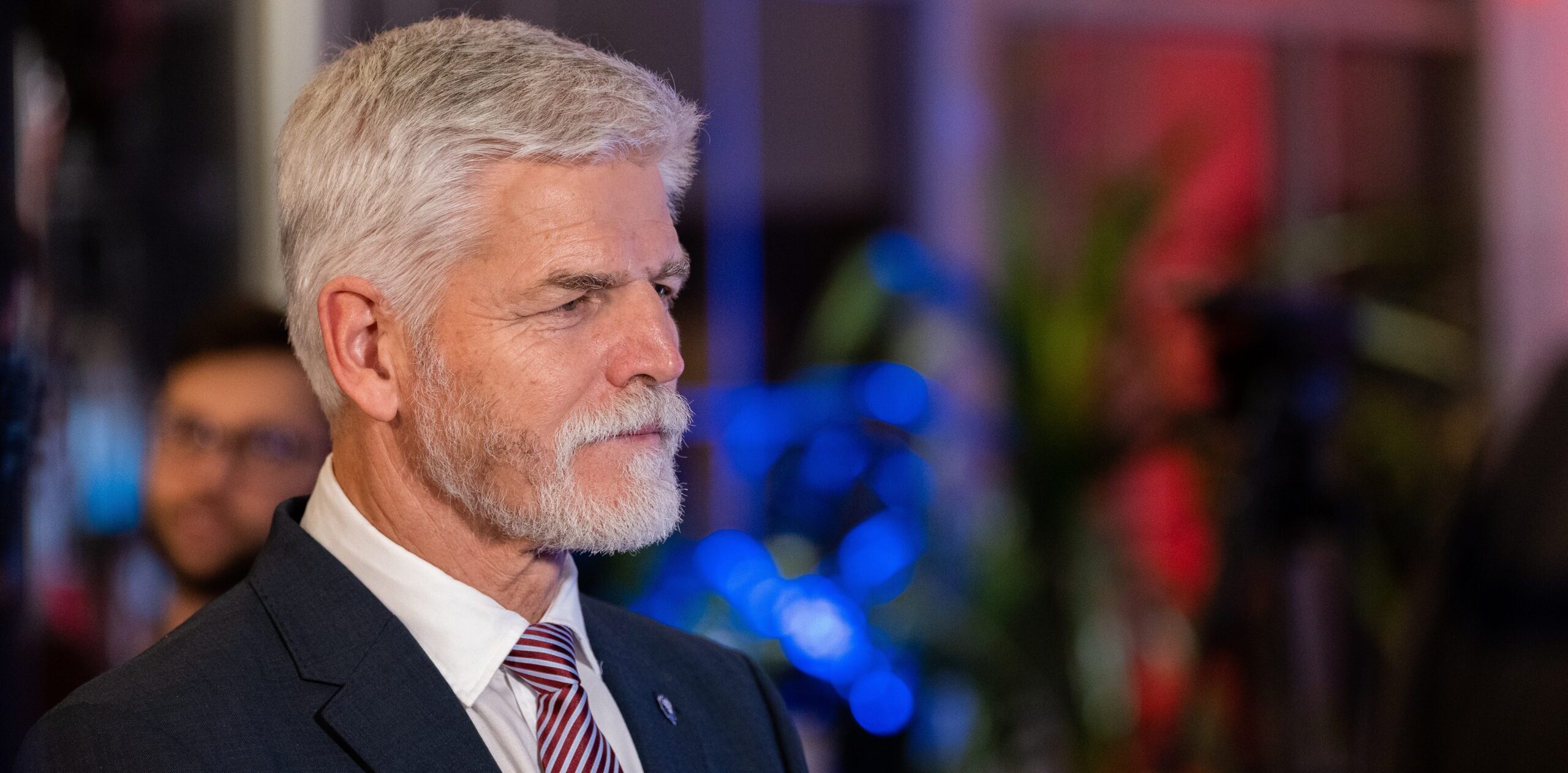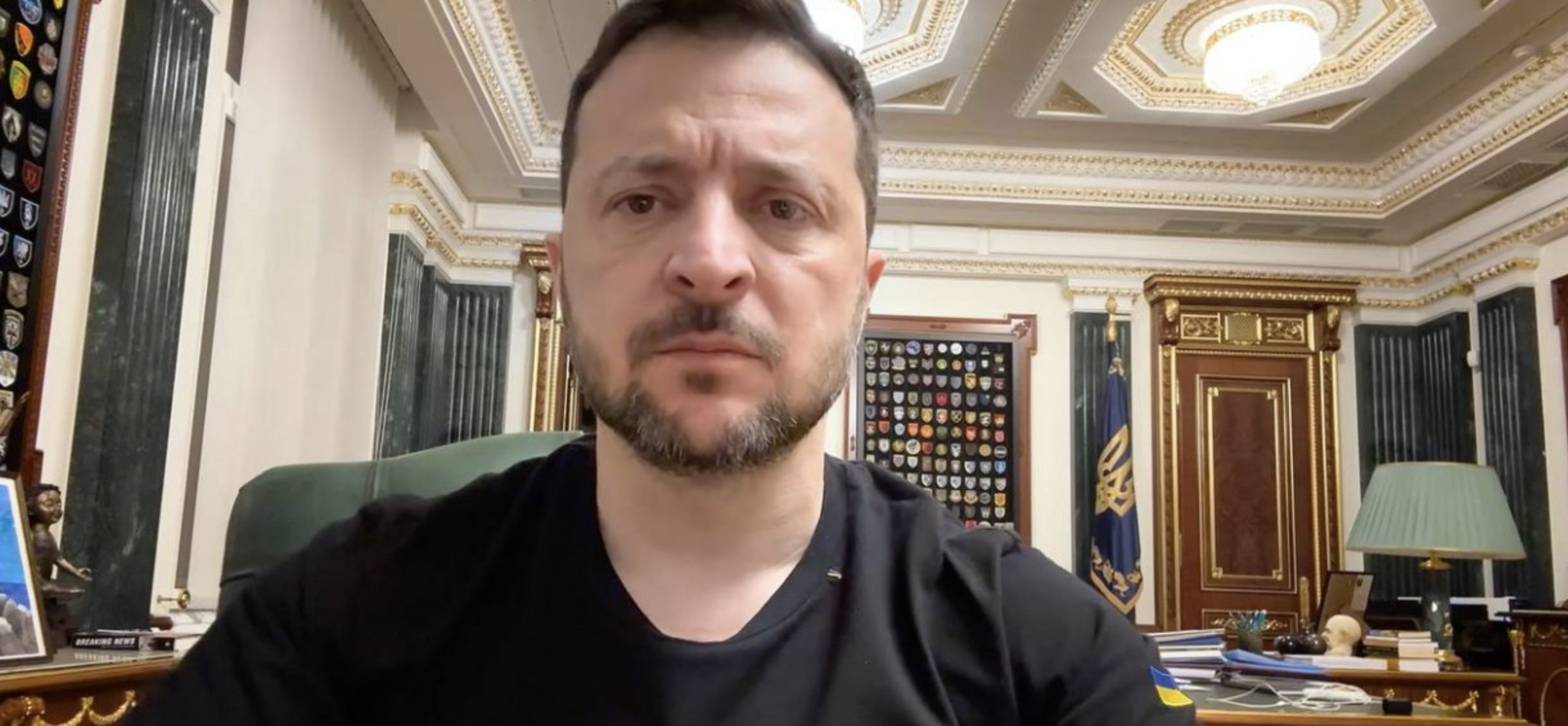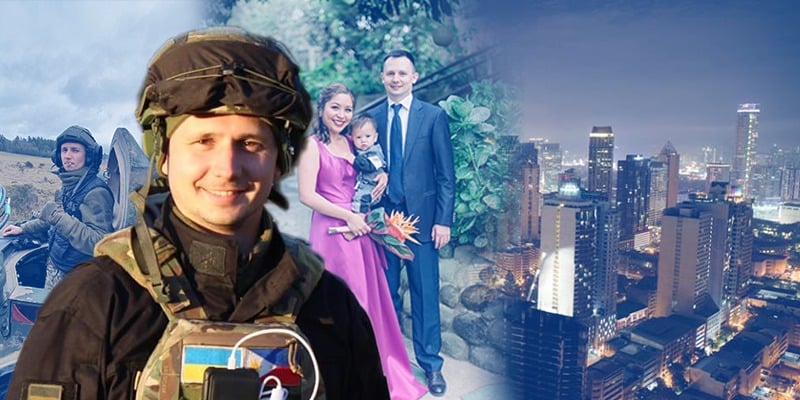
Yaroslav Koshelev joined the Armed Forces of Ukraine after the full-scale Russian invasion in February 2022. Before that, he was an active member of the Ukrainian community in the Philippines, where he lived before the full-scale war. Yaroslav agreed to be interviewed by the Ukrainian World Congress online – directly from Ukrainian positions on the front lines. He spoke about his decision to leave a successful career and life in the Philippines in exchange for weapons and trenches in Ukraine, his family’s reaction, and how the Ukrainian diaspora can help Ukraine overcome Russia.
The narrative sequence has been adjusted for better comprehension. The text has been edited for clarity.
Lawyer, activist, father: Life before the Great War
At the time of the full-scale Russian invasion of Ukraine, I had been living in the Philippines for three years. I have a son, and my wife is from the Philippines – we studied together in the master’s program at London BPP Law School.
When I arrived in the Philippines, like every immigrant, I went through three stages of adaptation. Firstly, the honeymoon phase, a vacation-like period where everything was satisfying and enjoyable – the food, culture, and social interactions. Then came the routine, a stage involving paperwork, and settling practical matters. The third stage was everyday life. After 6-8 months in the Philippines, I had more or less adapted, but I felt a lack of social interaction, started missing home and longed for my homeland.
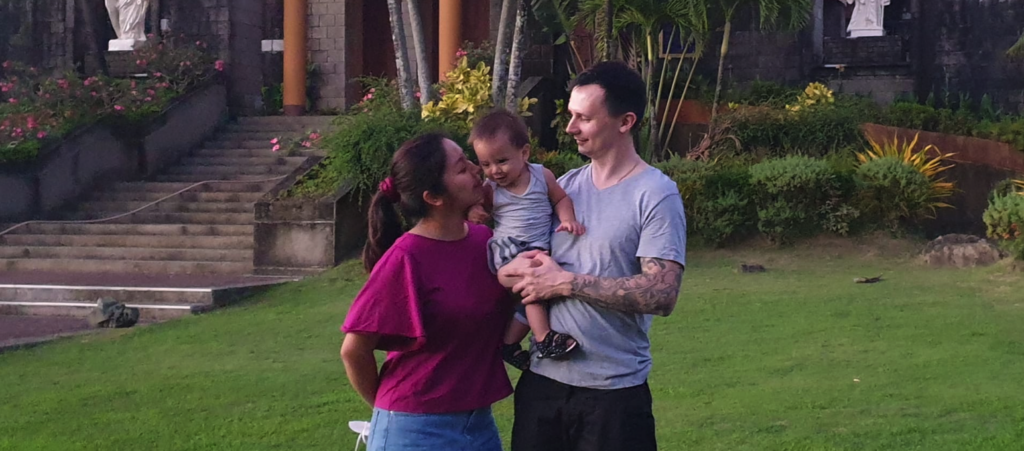
In the Philippines, I met many people, initially to gather information about doing business in the country and insights into the country’s culture, because the Philippines is highly diverse with 7,000 islands and numerous ethnicities. In time, I began receiving requests for legal assistance and started helping people. After meeting Nataliya Poshyvaylo-Towler [UWC Vice President, Oceania, and Asia], I decided to get involved in the activities of the Ukrainian community.
In the Philippines, I was engaged in three main areas. Firstly, I represented UWC in Southeast Asia and worked with the local Ukrainian community. We conducted [public] education activities about Ukraine, and participated in projects with the Ukrainian Chamber of Commerce and Industry. For example, we organized tree planting in the Philippines, to unite the community and promote our activities.
Secondly, I served as the representative of the Ukrainian Chamber of Commerce and Industry in the Philippines beginning in January 2021. The activities were similar – representing Ukraine. I assisted Ukrainian exporters in exploring the Philippine and Southeast Asian markets, finding clients, and conducting bilateral negotiations.
Thirdly, being a professional lawyer, I helped Ukrainians resolve legal issues with the embassy and remotely addressed legal matters in Ukraine.
And of course, raising my son. My son was born in the Philippines, and I helped my wife in his upbringing. This happened during the COVID-19 pandemic, making it a challenging experience due to significant restrictions in densely populated areas.
“On February 24, I was already on the plane”: deciding to go to the frontlines
I closely followed the news [before the full-scale Russian invasion], constantly dozing off and waking up with my phone, monitoring the situation on the Belarusian border, as there were reports of military exercises there. Coming from Crimea, I had the experience of being an internally displaced person, I observed the preparation and subsequent annexation of the territory. So, I warned my wife, mother-in-law, and father-in-law that I might have to leave very quickly when the time came, as I had left my mother, father, and brother behind in Kyiv. That’s exactly what happened.
When [Putin] announced the invasion at 4:00 am Moscow time, it was already 11:00 am in the Philippines. At 11:00 pm on February 24, I was already on a plane, and by February 25, I arrived in Poland. I crossed the Polish-Ukrainian border with other men returning to Ukraine from abroad on March 1.
During those few days in Poland, I was constantly in touch with my family [in Kyiv], monitoring the situation. They suggested that I stay in Poland and wait for them to leave the country on their own. One day, the Russians launched a missile attack on Kyiv, targeting the Kyiv International Airport (Zhuliany), not far from where my family lived. Then, the Russians targeted a residential building a kilometer away from our home. The next day, I bought warm clothes, took a friend’s backpack, and headed to the [train] station, where I approached volunteers. They bought me tickets for three different trains, and I made it to the border.
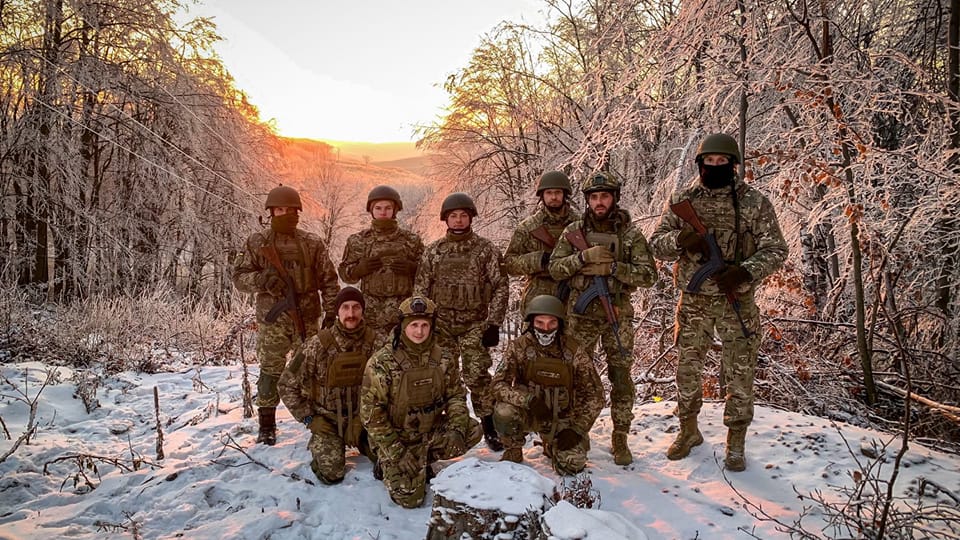
I saw that the consequences [of the Russian invasion] were escalating, the threat was growing, and I didn’t want to lose my building, home, and all my property for a second time, as we had lost it in Crimea. And, I knew how to act in a stressful situation; I had a car in Kyiv, which I was going to reclaim from a friend, pick up my family, and take them to a safe place. That was the plan. So, I crossed the border, reached Lviv, and then from Lviv to Kyiv. Today, my parents [still] live in Ukraine because they stopped thinking about leaving after I joined the military.
I didn’t join the Armed Forces immediately, even though I was a reserve officer. Initially, First I went to the training center at the Kyiv Military Administration. There, I underwent training, became an assistant instructor, and then an instructor. In August 2022, after an interview with Sergeant [Valerii] Markus, I joined the 47th [battalion, now the “Magura” 47th Separate Mechanised Brigade of the Armed Forces of Ukraine – ed.].
Next, in January [2023], I took a position in the 1st Separate Assault Battalion of the 67th Brigade, the battalion formed by Hero of Ukraine Dmytro Kotsiubailo (call sign “DaVinci”). In the 47th, I became a platoon commander in the second battalion. I received training, and weapons, and later took the position of a company commander. By June, we had already been in battles near Robotyne, Orikhove, and Mala Tokmachka.
At first, my wife reacted negatively to my decision to go to the front. There were attempts to try and force me to stay. It was a difficult period because my son was only a year old, and just starting to speak, and it was morally challenging to leave. I explained my decision to my wife, provided [my] reasoning, and she came to understand me, and after reading and seeing what was happening, she said that she supported me. That happened after a year and a half, when she came to visit me with our son in October 2023. She communicates with locals in the Philippines, engages in educational activities, speaks publicly, appears on radio and television, and compares our conflict to the potential conflict between the Philippines and China, which also has imperial ambitions and has annexed several Philippine islands.
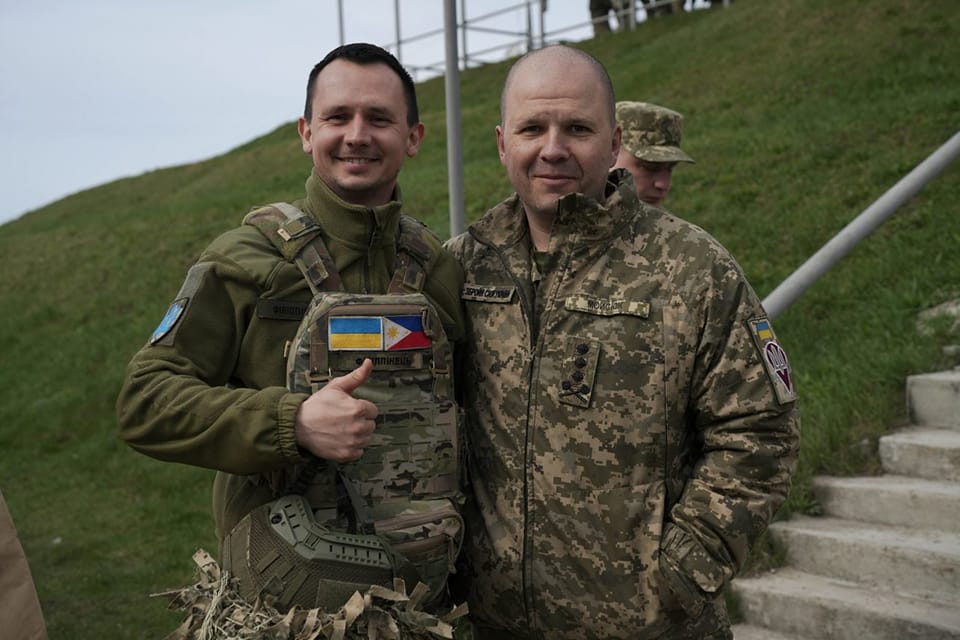
The army teaches and provides many valuable skills. Firstly, the ability to live one day at a time. Planning is very difficult in such unpredictable conditions. Planning is necessary for special operations, but regarding daily life – we live one day at a time. I stopped making plans. There is also an understanding that this war will last a long time. Not for six months, a year, but at least two, or even 5 years. There is a brother-in-arms whom I highly respect; he says the war will last 5 years. I hope he’s wrong. Considering all this, you start planning your life in the military. Here, I have also met many outstanding warriors, people I would have never met otherwise. We simply would have never met, wouldn’t have gotten to know each other, and wouldn’t have become brothers. These are people I will go through life with.
While in the army, I began to value family a lot. I came to this realization when my family came to see me after I was wounded and ended up in hospital. My family traveled 18,000 kilometers to see me. I began to value the moments I missed.
How the Diaspora can help Ukraine
The Diaspora can help in several aspects. Firstly, in regions like Asia, conducting awareness campaigns is crucial. In Southeast Asia, few people understand what Ukraine is, the essence of the conflict, and why we fight for independence and freedom. Ukrainian communities should explain this through friends, acquaintances, media, and social networks.
Activities like those conducted by Paul Grod [the UWC President – ed.] are important. He visits units, collects information about their needs, and starts fundraising to address those needs. The Diaspora must engage in such activities. For example, Ukrainians in the Philippines raised funds for a Mavic 3T – a more expensive drone with night vision, and to provide humanitarian aid. Whenever I announce that I am fundraising, friends and acquaintances help by sending money. We resolved various issues, from buying tires for off-road vehicles to everyday matters.
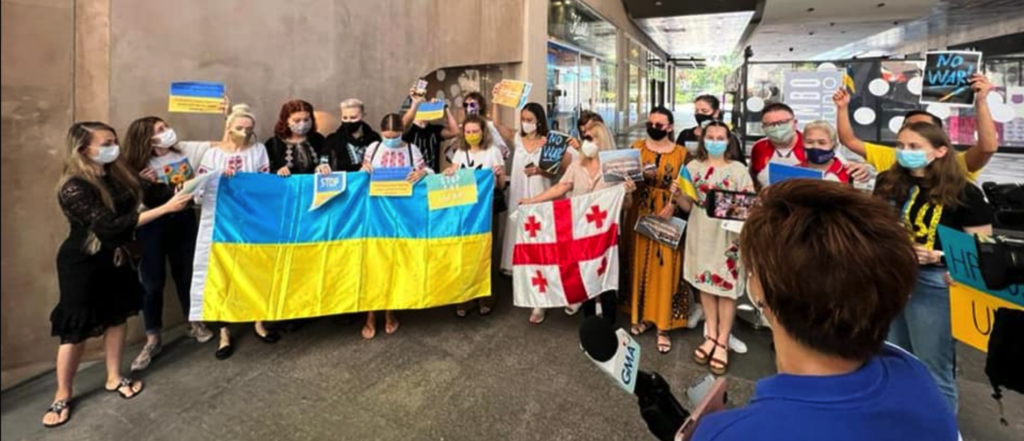
In the more developed countries in Europe and the United States, where communities have influence, they can host our soldiers for rehabilitation and help them adapt.
Regarding awareness, there are various methods. My wife and her friends organized boycotts near the Russian embassy. Actions in support of Ukraine involve not only Ukrainians but also locals, Poles, and our friends living in those countries. These events truly generate publicity.
Unfortunately, Russia inherited an ideology from the Soviet Union and has a powerful influence in Southeast Asia. Russia has many influencers in politics and business who clearly promote their position. So, people who are not properly informed, (unfortunately, such people exist in every country), actively write on their social media that “Ukraine should give up” or “It should stop the violence.”
It’s beneficial to explain Ukraine’s history using their own country’s example. For instance, when the Philippines weren’t yet the Philippines and Ferdinand Magellan, a Portuguese explorer in the service of the Spanish King Philip, arrived, he was killed as an occupant.
So, mentally and historically, Ukraine and the Philippines are very similar. We are very different but also very similar.
